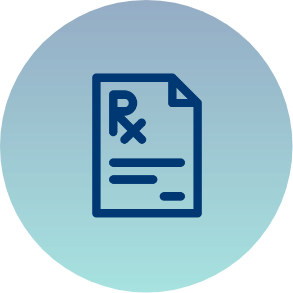The HbA1c or the glycohaemoglobin test is a blood test that measures the amount of blood sugar attached to the haemoglobin and is used to calculate the average of the same over a period of three month
The HbA1c or the glycohaemoglobin test is a blood test that measures the amount of blood sugar attached to the haemoglobin and is used to calculate the average of the same over a period of three months, as a red blood cell typically survives for three months in the human body.
The HbA1c test helps in measuring the blood sugar levels in an individual’s bloodstream over a period of two to three months. HbA1c is a blood test that helps in detecting type 1 and type 2 diabetes in the most comprehensive manner because it provides the average amount of glucose in the blood for a significant period. The HbA1c test report provides a detailed analysis of one’s blood sugar levels, helping healthcare providers in creating effective management strategies. Understanding the HbA1c diabetes range is vital, as the range above 5.7 can indicate prediabetes, while levels of 6.5 or higher typically indicate a person may have diabetes. Early detection through an HbA1c blood test allows for timely interventions, such as lifestyle changes and glucose monitoring, to manage blood sugar levels effectively and prevent complications.
Preparations Before Glycated Hemoglobin Test in Jaipur
Preparation for the HbA1c test does not require special preparations. However, a few steps can ensure an accurate HbA1c test report:
-
No fasting is required; one can eat or drink normally before the test.
-
Inform the doctor about any recent illness or medications an individual is taking, as certain medications may affect the test results.
-
Avoid excessive physical activity or stress on the day of the test to prevent temporary changes in blood sugar levels.
-
The test measures the average blood sugar levels over a period of three months, reflecting the normal HbA1c range, which helps in the long-term monitoring of glucose control.
-
Check the HbA1c test price or enquire about the home collection option provided by Max Lab for added convenience.
Following the steps mentioned above can ensure the most accurate HbA1c test report, which can help manage blood sugar levels effectively.
What to Expect During the Procedure
During the HbA1c test, a small sample of blood is drawn from a vein, typically in the arm. The procedure is simple and generally involves minimal discomfort. The sample is then analysed to measure the level of glycated haemoglobin, which reflects the average blood sugar levels over the past three months. The full form of the HbA1c test is haemoglobin A1c, and this test provides crucial information for assessing long-term blood sugar levels.
The meaning of the HbA1c test is to measure the percentage of glucose bound to haemoglobin, offering insights into overall glucose management. Exceeding the normal value of HbA1c may indicate poor blood sugar control, which could require adjustments in lifestyle or treatment.
Why Doctors Recommend Glycated Hemoglobin Test
Doctors may recommend to book a HbA1c test for several reasons. Unlike daily blood glucose tests, the HbA1c test meaning refers to measuring the percentage of glucose that binds to haemoglobin in red blood cells, providing an average of blood sugar levels over a period of two or three months. Hence, one can book a price-efficient HbA1c blood test for the following reasons.
-
The test helps monitor long-term blood sugar control. An HbA1c test provides a clear picture of how well blood sugar has been managed over the past three months.
-
A HbA1c blood test helps determine if an individual’s current treatment plan is effectively controlling sugar. If the result remains high beyond the normal range of the HbA1c blood test, adjustments to the plan may be needed.
-
The HbA1c test can detect blood sugar levels. Early intervention can help prevent prediabetes or diabetes.
-
Those with a family history of diabetes may be at a higher risk, and regular testing by booking an HbA1c test means detecting early signs of abnormal glucose levels.
-
By detecting irregular blood sugar patterns early, consistent monitoring can help prevent complications such as heart disease, kidney damage, and nerve issues.
-
Based on the HbA1c test normal range chart, doctors may adjust treatment plans, including medication, diet or lifestyle changes to maintain optimal glucose levels.
Factors That Contribute to The Risk Of Elevated Increased glycated hemoglobin?
Several factors can contribute to the risk of elevated glycated haemoglobin levels, indicating poor blood sugar control. The factors include:
Uncontrolled Diabetes
When blood sugar levels increase beyond the normal range, it leads to an increase in HbA1c. How HbA1c is calculated involves measuring the percentage of glucose bound to haemoglobin in red blood cells, and high blood sugar levels cause more glucose to bind, raising HbA1c.
Dietary Habits
Individuals consuming a diet high in refined sugar and carbohydrates may cause their blood sugar levels to increase.
Lack of Physical Activity
Regular exercise helps keep one’s body fit to regulate blood sugar levels, so a sedentary lifestyle may contribute to elevated levels.
Obesity
Excess weight, especially abdominal fat, may increase insulin resistance and lead to higher blood sugar levels, impacting HbA1C levels.
So, how to control HbA1c naturally? One can practice adopting a balanced diet, regular exercise, stress management and healthy weight management to manage and lower HbA1c levels naturally.
Why Doctors Recommend CBC Test
In general, a person should opt for an HbA1c test once every three years, but people suffering from prediabetes or diabetes or having risk factors for the same may be advised to get the test performed more frequently. The HbA1c test is also used during pregnancy and before, and screening for gestational diabetes is also advised. Risk factors for such conditions include a family history of diabetes, being more than 45 years of age, having a sedentary lifestyle, etc. Additionally, the HbA1c blood test is commonly used during pregnancy to screen for gestational diabetes. Early detection through routine testing can help individuals manage their blood sugar levels and prevent complications associated with these conditions.
No special preparations are required before going for an HbA1c test. A person can get the test performed at any time during the day. However, if there are other tests that have been prescribed along with the HbA1c test, then it is prudent to seek a doctor’s advice about any necessary preparations to be made. For instance, if fasting blood sugar levels are required, the doctor may provide specific instructions regarding fasting or medications to be taken before the test. For those concerned about the HbA1c test cost, it is best to check the price on the Max Lab website.
Understanding the Test Results
Understanding the HbA1c test report is essential for assessing long-term blood sugar control and managing diabetes. The test measures the percentage of glucose attached to haemoglobin, and interpreting the results helps healthcare providers evaluate one’s risk for diabetes and related complications.
Normal Range
An HbA1c level below 5.7 is considered normal, indicating healthy blood sugar levels.
High Range
A range higher than 5.7 can either suggest prediabetes or diabetes. Lifestyle changes and certain medications are often recommended to prevent the progression of diabetes.
Low Range
An HbA1c below four may indicate hypoglycemia, which is known as low blood sugar in generic terms. It is important to consult a doctor for further evaluation.
Glycated Hemoglobin Test Results in Jaipur During Special Conditions
HbA1c test results can be influenced by various factors. Ahead are a few factors that may affect the accuracy and interpretation of the test results:
Pregnancy
During pregnancy, HbA1c levels may be lower due to changes in blood volume and red blood cell turnover. Hence, one must monitor their blood sugar levels closely for gestational diabetes, as the HbA1c test may not always provide an accurate representation during this period.
Age
Older individuals may experience slightly higher HbA1c test results than the normal range due to age-related changes in metabolism and insulin resistance.
Blood Disorders
Conditions like anaemia, sickle cell disease or other haemoglobinopathies can affect HbA1c test results by altering the lifespan of RBCs, leading to inaccurate readings. Alternative tests may be recommended for accurate diagnosis.
Kidney Disorders
Chronic kidney disease can cause elevated HbA1c levels, as kidney function affects glucose metabolism and RBC turnover. Hence, monitoring is crucial for managing diabetes and related complications in individuals with kidney issues.
How to Maintain Healthy Glycated Hemoglobin Levels
Maintaining healthy glycated haemoglobin levels is crucial for managing blood sugar and reducing the risk of diabetes-related complications. A balanced lifestyle, dietary choices, and regular exercise play a significant role in controlling blood sugar levels. Monitoring the HbA1c test report regularly helps track progress and identify potential issues.
Understanding the meaning of high HbA1c levels is crucial for those with high levels, as they indicate poor blood sugar control. It is important to work closely with a healthcare provider for personalised recommendations and treatment plans.














 7982100200
7982100200





 Test Name
Test Name  Also Known as
Also Known as  Sample Type
Sample Type  Gender
Gender  Age group
Age group  This Test Includes
This Test Includes  Price
Price@3x.png)











 To reach our help desk call 9213188888
To reach our help desk call 9213188888.png)